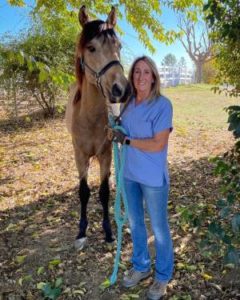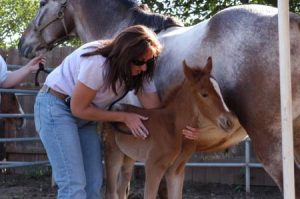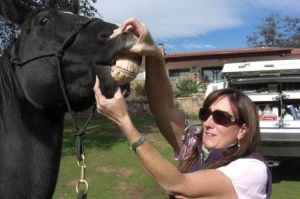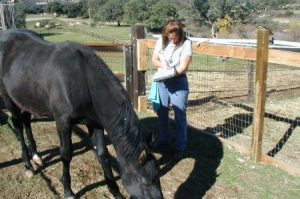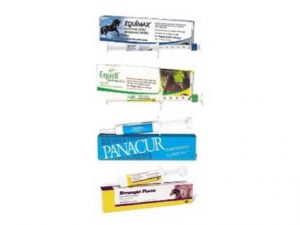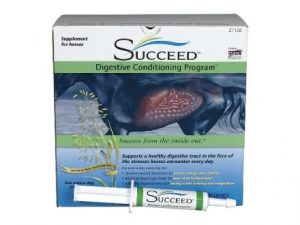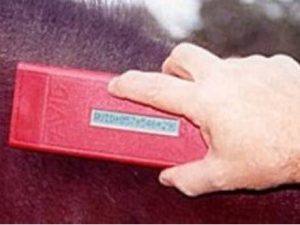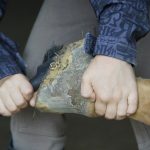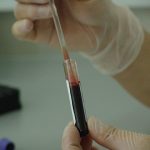
TYPES OF HERPES
Of the 8 types of herpesvirus that affect horses and donkeys/ 2 types cause the most significant disease. These are equine herpesvirus type 1 (EHV-1) and type 4 (EHV-4). Both of these cause the disease known as rhinopneumonitis/ which can be manifested as respiratory infections/ abortion and neurologic problems.
Horses become infected with equine herpesvirus by inhaling the virus in respiratory droplets from infected horses and by contact with equipment/ feed or water contaminated with the virus. Horses are immune to the virus for only 2-3 months after vaccination or infection. In some infected horses/ the virus remains dormant and later causes disease when the horse is stressed {latent infection).
Clinical Signs of Herpesvirus Infection
Respiratory Disease: Horses may show a fever (102-106 F)/ inappetence and a slight nasal discharge 2-10 days after initial infection. Infected foals may develop pneumonia.
Abortion: Abortions caused by herpesvirus usually occur in late pregnancy and may or may not be preceded (days to weeks) by the respiratory infection. Though most foals aborted are dead/ those still alive are weak and soon may die. Only a single mare in a group may abort/ or an “abortion storm” may sweep through an entire group of pregnant mares. Infected mares can transmit the virus to other horses.
Neurologic Disease: Herpesvirus can cause an altered gait (primarily in the rear legs)/ a head tilt and front leg problems to the point where the horse goes down and cannot rise. Some horses have difficulty passing urine and manure. Neurologic (nervous system) problems may occur in single horses or in an entire group of horses. Laminitis can be a serious complication in these horses. Vaccination does not prevent this uncommon form of the disease.
Important Points in Treatment
There is no specific treatment to cure viral infections. Treatment is supportive and aimed at keeping the horse comfortable and preventing complications.
Secondary bacterial infection: Bacterial infection can complicate upper respiratory disease caused by equine herpesvirus
Airway inflammation and immune reactions: Antiinflammatory drugs are sometimes helpful to combat airway inflammation and abnormal immune responses to herpesvirus infection.
Aborted fetus: The aborted fetus should be examined by autopsy to confirm or rule out equine herpesvirus infection. Package the aborted fetus in a heavy plastic bag (such as a trash bag) at the abortion site and keep it cold (do not freeze) until it can be transported to the diagnostic laboratory for autopsy. Do not drag the fetus away from the area where it was found/ as this will spread the virus.
Aborting mares: Mares that have aborted require no specific treatment/ unless they have sustained genital tract injury during the abortion.
Recumbent horses: Horses that are down and having difficulty in rising should be placed on deep/ clean bedding that is frequently changed. Keep the area free of manure and urine. Be sure the horse is urinating and passing manure. Watch for skin abrasions (bed sores) and keep these clean.
Vaccination: Vaccination may help prevent the respiratory and abortion forms of herpesvirus infection, but it does not prevent the neurologic form.
Call the office at 619.659.1180 if you any questions concerning rhinopneumonitis.

